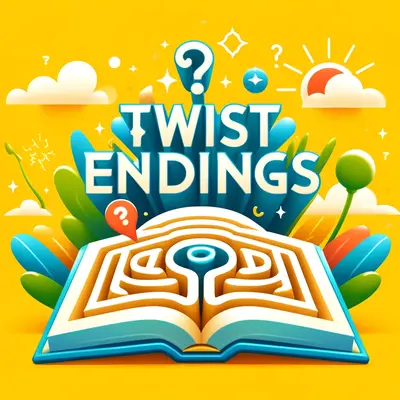Twist Endings in “Life of Pi,” “Atonement,” and “We Need to Talk About Kevin”

Twist endings are the hidden treasures of literature. They ensnare our attention, drawing us deeper into the narrative with each unforeseen development. Just when we’re convinced we’ve unraveled the plot, a sudden shift in the story catches us off-guard, leaving us in wonder. This blog post explores three exceptional novels that are celebrated for their astonishing finales:
Each book skillfully subverts our predictions, offering twists that resonate well beyond the closing chapters. I found myself amazed, thrilled, and utterly bamboozled!
1. Life of Pi by Yann Martel: A Big Test of Survival
“Life of Pi” invites us on a voyage with Pi, a young survivor of a catastrophic shipwreck. Adrift on a tiny boat in the vast ocean, he shares his refuge with a Bengal tiger named Richard Parker. The tale chronicles Pi’s bravery and ingenuity as he navigates the perils of the sea.
The novel’s twist prompts profound reflection. Pi narrates two starkly contrasting accounts of his ordeal. In one, the tiger is his companion; in the other, the tiger is absent. The latter story is notably more distressing. The ambiguity of the true account challenges readers to confront their beliefs and the reasons behind them.
2. Atonement by Ian McEwan: The Power of Stories and Regret
“Atonement” tells a heart-wrenching tale of love, conflict, and the burdensome consequences of errors. It begins with Briony, a young girl whose misjudgment leads to a false accusation against Robbie, an acquaintance. This charge irrevocably alters Robbie’s destiny and that of others.
As the story progresses, an older Briony seeks to atone for her past by writing a novel with a fabricated happy ending for Robbie and her sister Cecilia. However, the stark reality is revealed: the optimistic conclusion is a fiction. Robbie and Cecilia’s actual fates were sealed in the war. This twist underscores the enduring impact of mistakes and the attempt of narratives to mend the irreparable.
3. We Need to Talk About Kevin by Lionel Shriver: A Mother’s Struggle with Tragedy
“We Need to Talk About Kevin” delves into the struggles of Eva, a mother grappling with her son Kevin’s appalling deed. Kevin has perpetrated a dreadful act at his school. Through letters to her husband, Eva endeavors to comprehend the event.
The narrative’s twist emerges when it’s disclosed that Eva has omitted a crucial detail: Kevin’s younger sister was among his victims. This revelation is startling and alters our perception of the entire story. It challenges our assumptions about the characters and prompts a reevaluation of guilt and malevolence.
4. Conclusion: The Impact of Twist Endings
“Life of Pi,” “Atonement,” and “We Need to Talk About Kevin” demonstrate the profound influence of twist endings in literature. These climactic surprises compel us to ponder deeply on themes such as truth, forgiveness, and the essence of humanity. The twists are not mere plot devices; they are integral to the narratives, prompting a reexamination of our worldview.
Whether you’re an avid reader or just beginning, these novels will captivate your mind and stir contemplation. They serve as a reminder that the most memorable stories are often those that defy our expectations.
Not sure what to read next? Try our Random Genre Generator. Discover new genres and find your next book. SPIN THE WHEEL and let the generator select a random genre name for you. Click on the link and see what’s available.
Leave a Reply